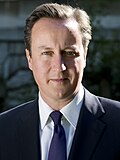6 May 2010 | |||||||||||||||||||||||||||||||||||||||||||||
All 32 London boroughs, all 36 metropolitan boroughs, 20 out of 55 unitary authorities, 76 out of 212 district councils, and 4 directly elected mayors | |||||||||||||||||||||||||||||||||||||||||||||
|---|---|---|---|---|---|---|---|---|---|---|---|---|---|---|---|---|---|---|---|---|---|---|---|---|---|---|---|---|---|---|---|---|---|---|---|---|---|---|---|---|---|---|---|---|---|
| |||||||||||||||||||||||||||||||||||||||||||||
 Colours denote the winning party, as shown in the main table of results. | |||||||||||||||||||||||||||||||||||||||||||||
The 2010 United Kingdom local elections were held on Thursday 6 May 2010, concurrently with the 2010 general election. [1] Direct elections were held to all 32 London boroughs, all 36 metropolitan boroughs, 76 second-tier district authorities, 20 unitary authorities and various Mayoral posts, all in England. For those authorities elected "all out" these were the first elections since 2006.
Contents
- Results
- London boroughs
- Metropolitan boroughs
- Unitary authorities
- Non-metropolitan districts
- Half of council
- Third of council
- Mayoral elections
- References
The results provided some comfort to the Labour Party,[ citation needed ] losing the general election on the same day, as it was the first time Conservative councillor numbers declined since 1996.[ citation needed ]



